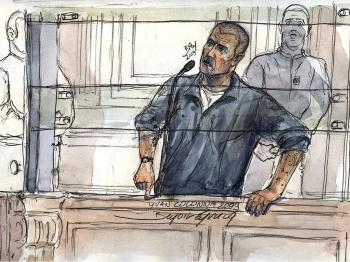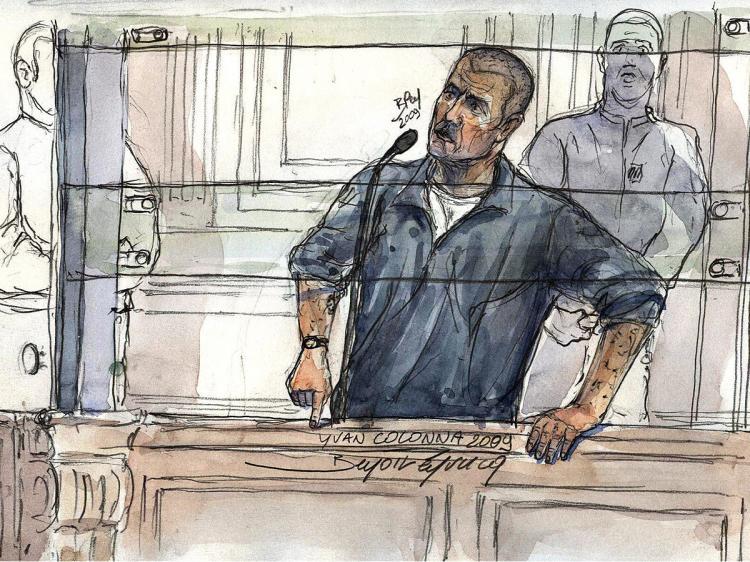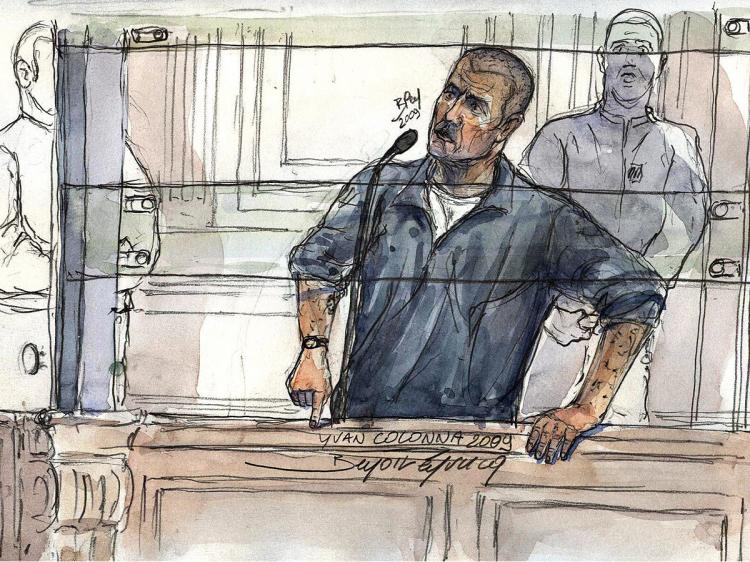Yvan Colonna, an independence activist of the French Mediterranean Island of Corsica, received a life sentence in December 2007. He always claimed innocence, and his lawyers are currently vigorously presenting their case to secure his release.
The case, however, has been far from simple. On Friday Feb. 13 for instance, a former associate of Prefect Erignac, Didier Vinalas, stirred up the defense lawyers when he mentioned that two suspects potentially linked to the assassination were free and had not been subject to any investigation. Colonna’s lawyers consequently threatened to leave the court, accusing the French justice of conspiracy. It was finally found that the suspects had in fact been investigated and that no evidence against them was found.
Further adding to the hectic atmosphere of the appeal court, on March 9, Peter Alessandri, an activist already condemned for having organized the assassination, again confessed to having killed Prefect Erignac with three shots to the back of the head. His late claim, however, was less than convincing to the magistrates. Alessandri, and four members of an assassination commando team, all indicated in 1999 that it was Colonna who pulled the trigger, before suddenly changing their stance in 2004. In the new version of the events made by Alessandri, Colonna was not even in the group. Upon hearing this, the lawyer of Erignac’s wife, Mr Philippe Lemaire, shouted in the court: “Do you think we are all dumb?!”
For former anti-terrorist police head, Roger Marion, there is no doubt that Yvan Colonna is guilty: “Admissions made [by the commando] were detailed, compatible, verified, certified. They were obtained while fully respecting human rights and deontology,” he said, according to French newspaper L'Express
Yvan Colonna, quickly identified as a major suspect after the murder, escaped to the mountains of Corsica in 1999. He was only caught by police in 2003. The son of a former leftist Member of the Parliament, some regard his case as having become heavily politicized. A support committee was even created, and obtained nearly 40,000 signatures asking French magistrates to “respect the presumption of innocence.”
There is indeed, to date, no definitive proof that Yvan Colonna is guilty. An official expert also said that ballistic tests would even indicate that the murderer was taller than Colonna.
Colonna was part of one of several terrorist groups in Corsica claiming independence for the island. They regularly used explosives and assault rifles to destroy houses from mainland natives or to attack military police stations. The assassination of Prefect Erignac, Chief administrative official for Corsica, was the first case of a political murder on the island in recent history. It triggered a major change of policy from the French government toward the local activists.







